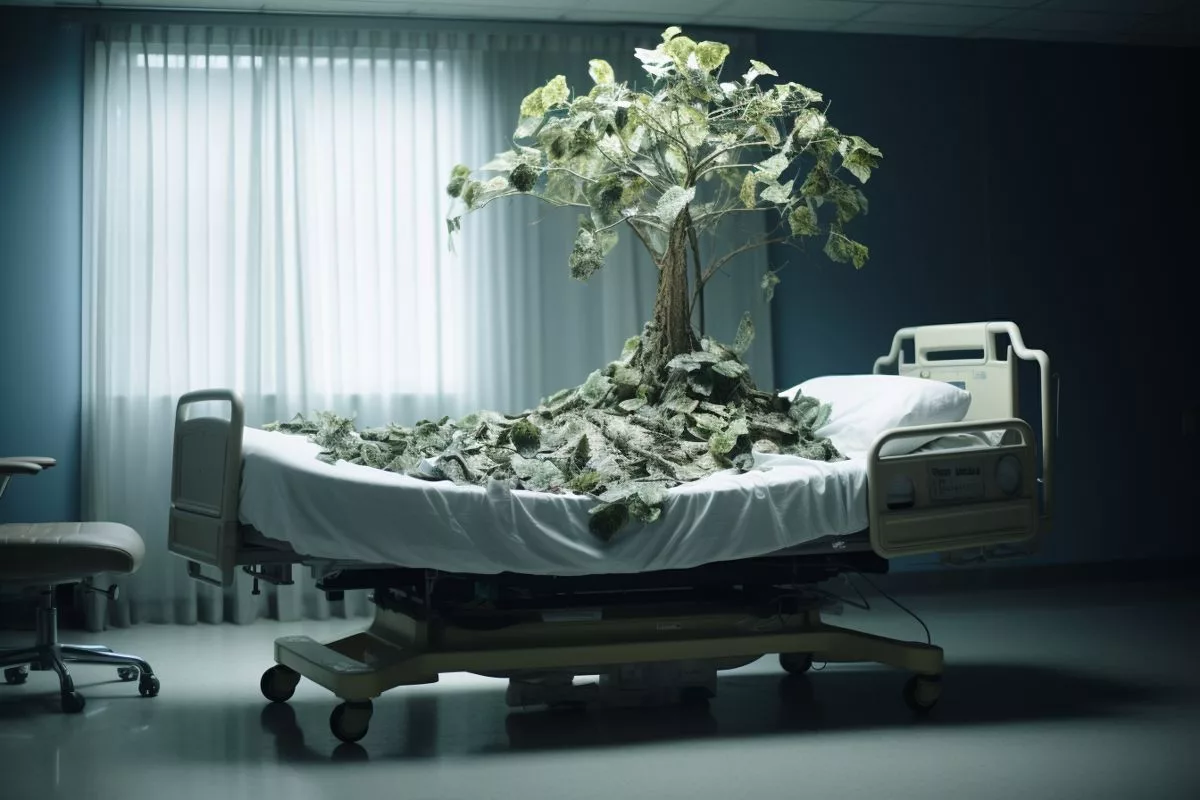Three of Western Cape’s academic hospitals in South Africa may face a financial crisis due to a budget deficit of at least R570 million. The Groote Schuur Hospital, Tygerberg Hospital, and the Red Cross War Memorial Children’s Hospital are struggling with cutbacks in service delivery, which may lead to a depletion of their funds by January 15. The crisis is due to an unexpected public sector wage increase for which the government did not provide funding, leading to a wage deficit of R8.7 billion.
Is a financial crisis looming for Western Cape’s academic hospitals?
Yes, Groote Schuur Hospital, Tygerberg Hospital, and the Red Cross War Memorial Children’s Hospital in South Africa’s Western Cape are facing a potential financial crisis due to a national budget deficit of at least R570 million. These vital healthcare institutions are struggling with cutbacks in service delivery to prevent complete depletion of their funds and are at risk of running out of funds by January 15. The unexpected public sector wage increase, for which the government did not provide funding, has contributed significantly to the crisis.
In South Africa’s Western Cape, three renowned academic hospitals are facing a potential financial crisis. Groote Schuur Hospital, Tygerberg Hospital, and the Red Cross War Memorial Children’s Hospital are at risk of running out of funds by January 15 due to a national budget deficit of at least R570 million. These vital healthcare institutions are now struggling with cutbacks in service delivery to prevent complete depletion of their funds.
Factors Contributing to the Crisis
An unexpected public sector wage increase, for which the government did not provide funding, has contributed significantly to the crisis. The wage deficit for all health departments reaches an astonishing R8.7 billion. The individual deficits for Tygerberg, Groote Schuur, and Red Cross War Memorial Children’s Hospitals are R275 million, R264 million, and R31 million, respectively.
The CEOs of the three hospitals have sent a memorandum to department heads to raise awareness about the situation. The memo emphasizes the severe consequences of maintaining current operations, such as unpaid salaries, non-delivery of consumables, and inability to order essential pharmaceuticals. Additionally, these costs would carry over to the next financial year, which is predicted to bring further budget cuts.
Funding Cuts Impacting Hospitals
National Treasury Services Grant, Human Resources and Training Grant, and Provincial Equitable Share are the three institutions funding these hospitals’ budgets. However, all have suffered significant cuts this year, with more reductions expected in the years to come. As a result, academic hospitals must slash consumables by 50%, cut overtime, rely less on agencies to address nursing shortages, and postpone hiring for three months.
A surgeon at one of the affected hospitals revealed that service de-escalation typically lasts for two weeks each year. However, this year it will extend to four weeks—the longest duration ever. Most elective surgeries will be postponed during this time, with only emergencies being attended to.
Consequences of the Budget Crisis
The budget crisis will have a ripple effect on outpatient clinics and elective surgery since the three academic teaching hospitals also handle the province’s most complex cases. Patients may be forced to present later with more advanced diseases.
Additionally, the budget shortfall threatens the education of medical professionals. Specialists may find it difficult to maintain their skills and provide training due to reduced surgery operating times. Furthermore, the backlog of cases resulting from the Covid-19 pandemic will worsen the situation.
The impending crisis is anticipated to reach its peak by January 15, with many staff members already resigning due to challenging conditions. The decisions to be made will force doctors to face significant medical-legal issues.
Impact on Patient Care and Staffing
Tygerberg Hospital and Groote Schuur annually treat approximately 500,000 patients in their outpatient departments and nearly 65,000 in their emergency centers. The Red Cross sees around 80,000 patients in its outpatient department and 36,000 patients in its emergency centers. As of October 31, Tygerberg, Groote Schuur, and Red Cross employed 4,639, 3,694, and 1,152 staff members, respectively.
Foster Mohale, the spokesperson for the National Department of Health, stated that the wage bill deficit is estimated to be about R8.7 billion for the health sector. The department is awaiting the budget adjustment speech by the Minister of the National Treasury to determine if the wage increase will be funded.
It is unclear how the additional R24 billion allocated this year and R74 billion over the medium term for wage increases in health, education, and police sectors will be distributed. Western Cape Department of Health and Wellness spokesperson Byron La Hoe acknowledges that it is difficult to predict how the department will be affected during the current financial year and the upcoming Medium-Term Expenditure Framework period (2024/25 to 2026/27).
Preparing for the Impending Cuts
As the crisis approaches, the department is involved in discussions with senior officials and service managers to prepare for the impending cuts. The public health system will need to prioritize and ration services, adopting a comprehensive and practical approach to maintain a balanced budget.
1. What is the financial crisis looming for Western Cape’s academic hospitals?
The Groote Schuur Hospital, Tygerberg Hospital, and the Red Cross War Memorial Children’s Hospital in South Africa’s Western Cape are facing a potential financial crisis due to a national budget deficit of at least R570 million. These vital healthcare institutions are struggling with cutbacks in service delivery to prevent complete depletion of their funds and are at risk of running out of funds by January 15.
2. What has contributed significantly to the crisis?
An unexpected public sector wage increase for all health departments reached an astonishing R8.7 billion, for which the government did not provide funding, has contributed significantly to the crisis.
3. How much funding deficit do each of the three hospitals face?
The individual deficits for Tygerberg, Groote Schuur, and Red Cross War Memorial Children’s Hospitals are R275 million, R264 million, and R31 million, respectively.
4. What are the consequences of maintaining current operations?
Severe consequences of maintaining current operations include unpaid salaries, non-delivery of consumables, and inability to order essential pharmaceuticals. These costs would carry over to the next financial year, which is predicted to bring further budget cuts.
5. How will the funding cuts impact the hospitals?
National Treasury Services Grant, Human Resources and Training Grant, and Provincial Equitable Share are the three institutions funding these hospitals’ budgets. However, all have suffered significant cuts this year, with more reductions expected in the years to come. As a result, academic hospitals must slash consumables by 50%, cut overtime, rely less on agencies to address nursing shortages, and postpone hiring for three months.
6. What will be the impact on patient care and staffing?
The budget crisis will have a ripple effect on outpatient clinics and elective surgery since the three academic teaching hospitals also handle the province’s most complex cases. Patients may be forced to present later with more advanced diseases. Specialists may find it difficult to maintain their skills and provide training due to reduced surgery operating times. Furthermore, the backlog of cases resulting from the Covid-19 pandemic will worsen the situation.
7. How many patients do the three hospitals treat annually?
Tygerberg Hospital and Groote Schuur annually treat approximately 500,000 patients in their outpatient departments and nearly 65,000 in their emergency centers. The Red Cross sees around 80,000 patients in its outpatient department and 36,000 patients in its emergency centers. As of October 31, Tygerberg, Groote Schuur, and Red Cross employed 4,639, 3,694, and 1,152 staff members, respectively.
8. What is the department doing to prepare for the impending cuts?
As the crisis approaches, the department is involved in discussions with senior officials and service managers to prepare for the impending cuts. The public health system will need to prioritize and ration services, adopting a comprehensive and practical approach to maintain a balanced budget.












